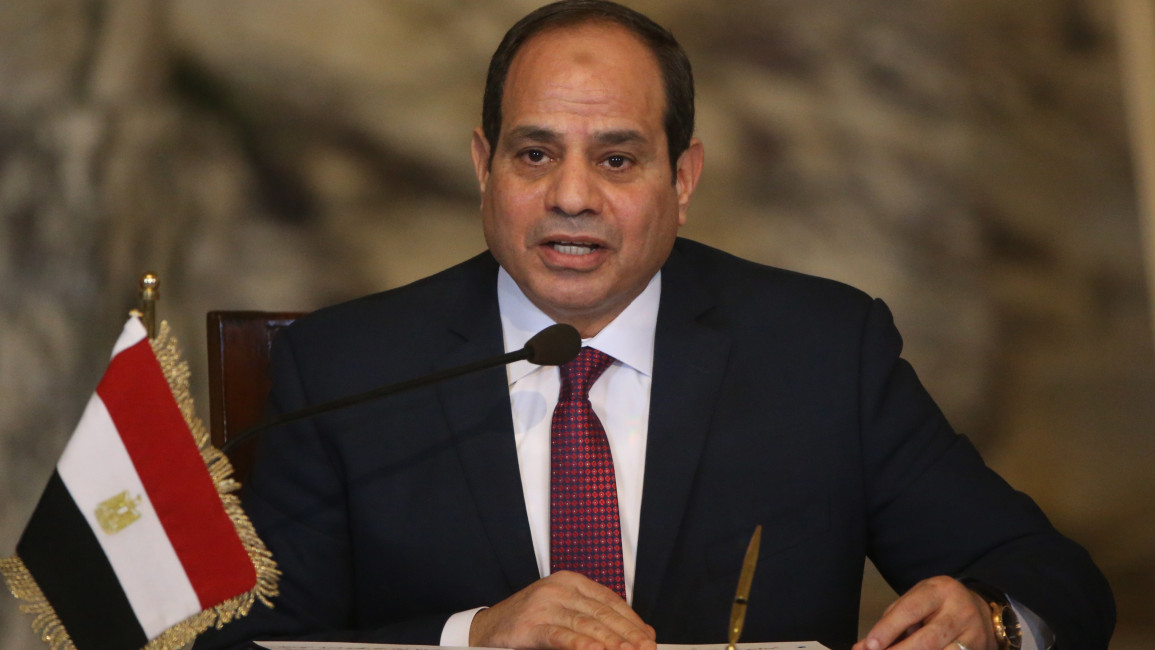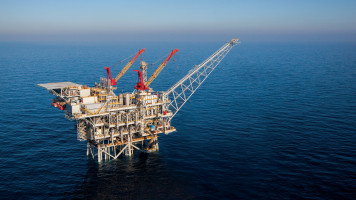
Is Egypt's national dialogue making any progress?

Last Ramadan, Egypt’s President Abdel Fattah el-Sisi invited opposition members to an iftar and called for a national dialogue. Over the course of a year, participants have met several times to discuss the agenda and procedures. However, they have never held an actual dialogue.
During the last year of meetings to launch the national dialogue, no major issues related to economics or politics were discussed, as the parties were busy deciding on the organisational and procedural measures.
Last month, the board of trustees of the national dialogue finally announced that the first actual dialogue session would take place on 3 May.
"Sisi's call for a national dialogue came after nearly a decade of stagnation in Egypt's political scene"
Yet even this session may go unheeded, as the opposition coalition, the Civil Democratic Movement, which includes 12 liberal and left-wing parties, announced on 27 March that it would only participate in the national dialogue after the previously agreed-upon guarantees have been addressed; specifically, “the release of prisoners of conscience”.
With activists still being arrested on a daily basis, this may spell doom for the dialogue process and the long-awaited session scheduled for May.
Dialogue roadblocks
Sisi’s call for a national dialogue came after nearly a decade of stagnation in Egypt's political scene and it followed reports showing that political instability in the country had pushed investors away, further worsening the current economic crisis.
In a statement last year, Fitch Ratings noted that Egypt's political situation "remains a significant tail risk", as "space for political opposition and freedom of expression is restricted”.
The national dialogue was among the solutions on the table to open up Egypt's public sphere, encourage business investments, and address the current economic crisis, described by the Egyptian prime minister as the most severe in a century.
Food and energy prices have spiked in Egypt since the Ukraine war started in February 2022. The local currency has been devalued three times since then, losing about 50% of its value against the US dollar.
|
|
During this last March, inflation reached 33.9%, placing an extra burden on 31 million people living below the poverty line.
“The current economic and political crisis should push everyone to start a dialogue,” Amr Hashem Rabie, a member of the National Dialogue Board of Trustees, told The New Arab. "But for the dialogue to move forward, political wisdom is needed, but there has been only ambiguity,” he added.
“At the moment, the government isn't implementing some demands that would make this dialogue more effective... The final obstacle is the release of prisoners. It is the security services' responsibility to push for the release of more prisoners now,” said Rabie, who is also the Deputy Director of the state-owned Al-Ahram Centre for Political and Strategic Studies.
Kamal Zayed, also a member of the National Dialogue Board of Trustees representing the Civil Democratic Movement, told The New Arab that his coalition would not enter into a comprehensive dialogue before releasing a list of prisoners of conscience that it submitted to the state.
"The national dialogue could yield recommendations on a variety of issues, from economics to politics. However, it is up to the president to decide what to do with these recommendations"
According to Zayed, the 3 May date remains a "suggested date, not a final one" for the dialogue to actually start. "Our hope is that the government will comply with the demands of the civil movement to release the list of prisoners of conscience during Eid al-Fitr,” he added.
"While many people have been released, they remain many other prisoners of conscience, and their release is one of the guarantees for the civil movement to enter the dialogue," Zayed said.
Last year, when the national dialogue was announced, the government also set up a committee for pardoning political prisoners in which families could submit the names of their relatives for release. By last March, a total of 1,300 had been released, according to Tariq Al Awadi, a committee member.
Al Awadi also expected hundreds to be released during Ramadan. However, many activists have been arrested in recent days for criticising the current economic crisis in the country on social media.
The opposition's only chance
Over the past few days, the national dialogue coordinator, Diaa Rashwan, has intensified meetings with representatives of NGOs and local syndicates to rally for the May dialogue session. He announced that the national dialogue meetings would be aired to the public.
Amnesty International Egypt researcher and MENA advocacy officer Hussein Baoumi told The New Arab that the national dialogue is an important event, but it is also important not to overestimate it.
“The national dialogue could yield recommendations on a variety of issues, from economics to politics. However, it is up to the president to decide what to do with these recommendations.”
“But on the other hand, this is a very very rare chance [for the opposition] to speak not only with the government but also with the people in Egypt, where the media is widely controlled by Egyptian authorities... If [the dialogue] is a public one it will be a very rare opportunity for the opposition to present an alternative to the Egyptian people," Baoumi explained.
|
|
He expects that more political prisoners will be released in the coming months. “But since the presidential pardoning committee was established last year, the government has arrested almost three times as many people as it has released,” he said. Even if the dialogue starts, “this will not be the end of mass arbitrary detention”.
According to Baoumi, the Egyptian public sphere has gradually become more open over the past year, beginning with the release of some detainees, the state avoiding arresting high-profile dissidents, and allowing some spaces, such as the win of independent journalist Khaled El-Balshy in the Journalists Syndicate elections last month.
"Since the presidential pardoning committee was established last year, the government has arrested almost three times as many people as it has released"
However, the media are still severely restricted, and forced disappearances are still systematic.
He added that the dialogue may lead to some freedoms, but it won't challenge Sisi's rule.
“It will be used externally and internally to claim that there’s a dialogue in the country… And that the next presidential elections, in a few months, will be fair.”
Azza Guergues is a Cairo-based journalist who has been covering MENA for ten years.
Follow her on Twitter: @AzzaGuergues




